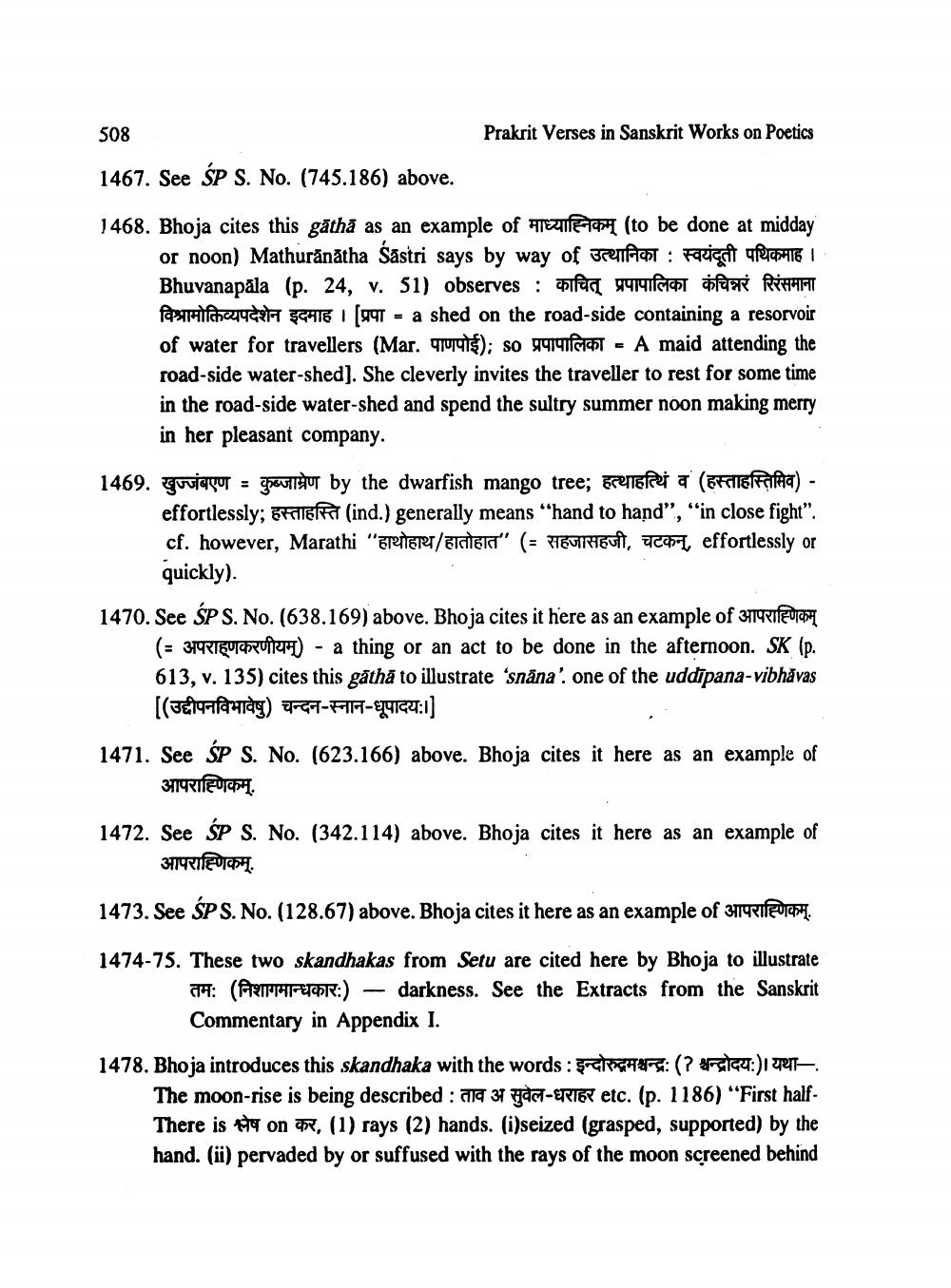________________
508
1467. See SP S. No. (745.186) above.
Prakrit Verses in Sanskrit Works on Poetics
1468. Bhoja cites this gathā as an example of
(to be done at midday
f
or noon) Mathurānātha śastri says by way of उत्थानिका : स्वयंदूती पथिकमाह । Bhuvanapala (p. 24, v. 51) observes विश्रामोतिव्यपदेशेन इदमाह । [प्रपा a shed on the road side containing a resorvoir of water for travellers (Mar. पाणपोई); so प्रपापालिका A maid attending the road-side water-shed]. She cleverly invites the traveller to rest for some time in the road-side water-shed and spend the sultry summer noon making merry in her pleasant company.
=
effortlessly;
1469 खुज्जंबएण = कुब्जाम्रेण by the dwarfish mango tree; हत्थाहत्थिं व ( हस्ताहस्तिमिव ) - (ind.) generally means "hand to hand", "in close fight". cf. however, Marathi "हाथोहाथ / हातोहात" (= सहजासहजी, चटकन्, effortlessly or quickly).
1470. See SPS. No. (638.169) above. Bhoja cites it here as an example of
(= अपराह्णकरणीयम्) - a thing or an act to be done in the afternoon. SK 613, v. 135) cites this gāthā to illustrate snana'. one of the uddīpana-vibhāvas [(उद्दीपनविभावेषु) चन्दन-स्नान- धूपादयः । ]
1471. See SP S. No. (623.166) above. Bhoja cites it here as an example of आपराणिकम्.
—
1472. See SP S. No. (342.114) above. Bhoja cites it here as an example of आपराणिकम्.
1473. See SPS. No. (128.67) above. Bhoja cites it here as an example of e
1474-75. These two skandhakas from Setu are cited here by Bhoja to illustrate तमः (निशागमान्धकारः) darkness. See the Extracts from the Sanskrit Commentary in Appendix I.
1478. Bhoja introduces this skandhaka with the words : इन्दोरुद्रमश्चन्द्रः (? श्चन्द्रोदयः) । यथा—. The moon-rise is being described: 1 3 -ER etc. (p. 1186) "First halfThere is on, (1) rays (2) hands. (i)seized (grasped, supported) by the hand. (ii) pervaded by or suffused with the rays of the moon screened behind




